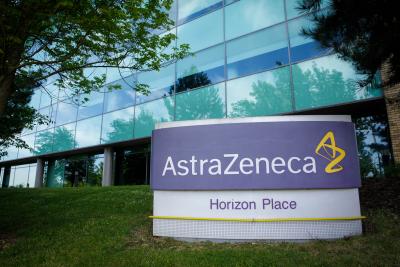WILMINGTON, Del.– New, prolonged follow-up results from the Phase III CHAMPION-MG trial open-label extension (OLE) showed that ULTOMIRIS® (ravulizumab-cwvz) demonstrated long-term efficacy in adults with anti-acetylcholine receptor (AChR) antibody-positive generalized myasthenia gravis (gMG), with improvements in activities of daily living, muscle strength and quality of life, sustained through 60 weeks. ULTOMIRIS was also well tolerated throughout this analysis.
Results from the trial were presented on April 5 at the 2022 American Academy of Neurology (AAN) Annual Meeting.
gMG is a rare, debilitating, chronic, autoimmune neuromuscular disease that leads to a loss of muscle function and severe weakness. Symptoms of gMG may include disabling fatigue, slurred speech, difficulty swallowing and eating, double or blurred vision, immobility requiring assistance, shortness of breath, and episodes of respiratory failure.
Professor James F. Howard, Jr, MD, Department of Neurology at The University of North Carolina School of Medicine and lead primary investigator in the CHAMPION-MG trial said: “gMG is a complex, devastating disease, disrupting many aspects of daily living, and helping patients improve muscle strength and function should be essential to any treatment plan. These results reinforce that C5 inhibition with predictable dosing is an important treatment option which provides sustained improvement of functional activities.”
Gianluca Pirozzi, MD, PhD, Senior Vice President, Head of Development and Safety, Alexion, said: “Alexion has pioneered the research of complement inhibition as a treatment approach for rare diseases, and we are continuing to innovate to benefit as many patients as possible. These data are encouraging because they suggest ULTOMIRIS has the potential to help a broader range of gMG patients, including those with milder symptoms, regain control of their lives and experience sustained clinical benefit through 60 weeks. We are deeply grateful for continued input and collaboration from the gMG community.”
Upon completion of the randomized control period (RCP) of the CHAMPION-MG trial, 99.4% of participants (n=161) entered the OLE, during which all patients received ULTOMIRIS. At the time of data cut off, 113 patients had reached 60 weeks. Efficacy analysis included all patients who received ≥1 dose of ULTOMIRIS in the OLE.
ULTOMIRIS demonstrated statistically significant improvements from baseline (defined as initiation of ULTOMIRIS therapy) in measures of functional activity, muscle strength and quality of life at 60 weeks of the OLE, including Myasthenia Gravis-Activities of Daily Living (MG-ADL) total score (-4.0 [95% CI -4.8, -3.1], p<0.0001). Additionally, patients transitioning from placebo (n=83) showed rapid response at a similar magnitude and time course as those who received ULTOMIRIS during the RCP.


